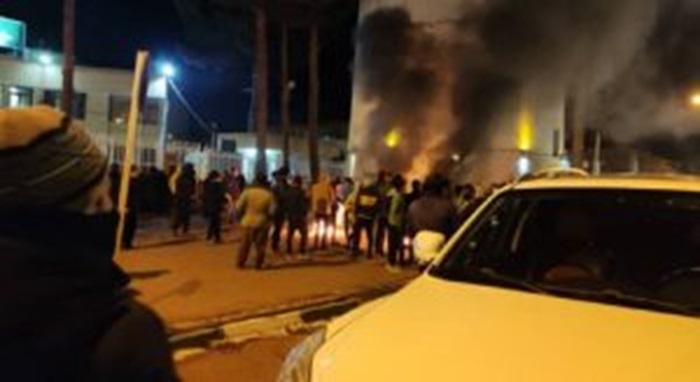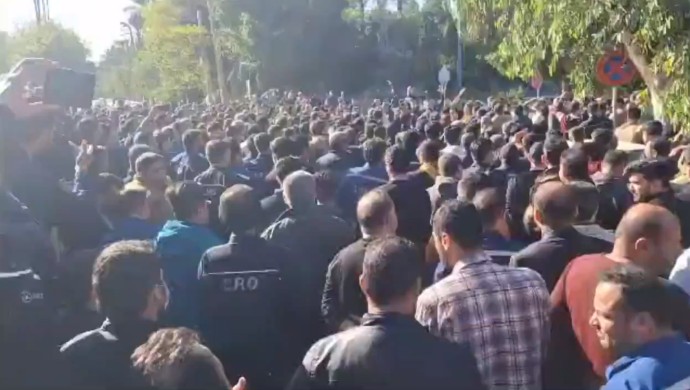
Forty-five years following the pivotal anti-monarchy revolution in Iran, a statement from Mohammad Taqi Akbarnejad, a figure entrenched within the regime, has reignited discussions on the current state and the historical trajectory of the Islamic Republic.
In a candid reflection titled “The Silent Death of a Revolution,” Akbarnejad’s remarks, disseminated through regime-associated media outlets, offer a grave assessment of Iran’s revolutionary ideals and their present-day manifestation.
What we are facing is deception.” This acknowledgment by a regime insider underscores a profound crisis within the ruling establishment, shedding light on the disillusionment pervading its ranks.
The cleric’s critique, though stark, resonates with a broader acknowledgment among even the authorities of the revolution’s departure from its foundational principles. His analysis, while emphasizing the revolution’s demise, inadvertently echoes the sentiments of a population yearning for change. “No revolution in history loses its place, no matter how much it is distorted,” Akbarnejad asserts, highlighting the indelible impact of the 1979 revolution and the Iranian people’s resolve for a renewed uprising against the religious dictatorship.

Akbarnejad lamented, “What we are facing now is neither the Islamic Revolution nor the Islamic Republic. Both are dead, and it has been a long time since they died.”
The narrative of the revolution’s “silent death” is juxtaposed with the resilient spirit of the Iranian populace. Historical moments, such as the mass protests on June 20, 1981, and the summer of 1988’s tragic executions of 30,000 political prisoners, predominantly from the People’s Mojahedin of Iran (PMOI/MEK), underscore the regime’s brutal attempts to quash dissent. These events, instead of eradicating opposition, fortified the Iranian Resistance and the collective memory of struggle and sacrifice.
Hossein-Ali Montazeri, once deemed Khomeini’s successor, voiced remorse over the regime’s actions, particularly the 1988 massacre, predicting a legacy of hatred towards the supreme leadership. This sentiment has been echoed in numerous nationwide uprisings, with the Iranian populace vocally condemning the regime’s authoritarianism and calling for democratic reforms.

This sentiment has been echoed in numerous nationwide uprisings, with the Iranian populace vocally condemning the regime’s authoritarianism and calling for democratic reforms.
The emergence of Akbarnejad’s critique is a testament to the internal fractures within the regime and the growing consensus on the need for a democratic overhaul. The persistent uprisings, notably those in December 2017, November 2019, and September 2022, signify a pivotal shift in Iranian society’s quest for freedom and democracy. These movements, spearheaded by a new generation of youth, signify not the death but the evolution of the 1979 revolution’s ideals towards establishing a democratic republic in Iran.
In an era marked by turmoil and aspirations for change, Akbarnejad’s reflections and the ongoing struggles of the Iranian people illuminate the enduring quest for a society founded on the principles of liberty, justice, and human dignity.The narrative of the revolution’s “silent death” is, in essence, a prelude to the birth of a new chapter in Iran’s quest for democratic governance.

MEK Iran (follow us on Twitter and Facebook), Maryam Rajavi’s on her site, Twitter & Facebook, NCRI (Twitter & Facebook), and People’s Mojahedin Organization of Iran – MEK IRAN – YouTu
